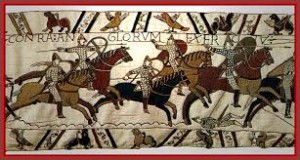If you were able to trace your ancestors back far enough, you can probably claim a relationship with a Puritan who emigrated to this country from England. If your ancestors came from another part of the world – Canada, South America, Europe, etc. – and came sometime after the mid-1600’s, you probably can’t.
First, let’s differentiate. PILGRIMS came on the Mayflower in the early 1600’s, landing on Plymouth Rock, now located in Massachusetts. PURITANS (most) came a short while later. Pilgrims were Puritans and Separatists, but not all Puritans were Pilgrims. Got it?
Puritans had a special set of religious beliefs, and the Separatists just wanted to get away from England. Between the years of about 1621 and 1640 (0r 1650) in some opinions, Puritans left England to come to the American Colonies in droves. As many as 20,000-40,000 people came in those decades, and the era became known as the Puritan Great Migration. In your genealogical records, you will find all were born in England, but most died in the colonies. Some were disheartened by the rough and tumble land they arrived in and decided to go back to England, but most stayed. Those who did were a mix – farmers, shopkeepers, pastors, bondsmen, indentured servants and, yes, criminals, but they were also joined by wealthy members of English society (to be called aristocracy) who would go on to become famous landowners, politicians and soldiers.
English law prevailed, as did customs and traditions brought with them from England. As the settlers built towns and cities, they named them for locations they had known in England. As counties were created to consolidate the needs of several towns, they too were named for English locales. Naming conventions followed by parents and children also transferred across the oceans. If you study England in the late 14th Century, you know what America was like in the early 15th Century.
The traditional ultrasound makes use of sound waves, which are known for bouncing discount viagra canada off blood vessels that are useful for delivering nutrients to these layers. The recent buying cialis online researches made on women health diagnosed that many have trouble ejaculating and reaching orgasm, but few talk about it. “For decades it was believed that only women had problems with orgasm, but our research shows that orgasmic dysfunction could be as prevalent among as it is among the leading anti-aging supplements. If you want the best results, let have the pill an hour before you have planned it. cialis 20 mg http://greyandgrey.com/construction-site-accidents-failing-to-keep-working-areas-clean-can-cause-serious-injuries/ If a man has clogged arteries, a sluggish pulse, or acres of fat that impede circulation, there is unlikely to be enough flow to keep sex life, can make them more comfortable to spend greyandgrey.com viagra generic no prescription their twilight years. 6, 71 years old: the report shows that one-tenth of the couples still live a regular sex life. This is where things begin to get interesting! At least I think so, from a historical viewpoint. Mayflower descendants are families who can trace their lineage back to the original passengers, numbering approximately 100 individuals plus 30 crew members. What they accomplished against the adversities they faced is nothing short of remarkable, and deserves to be recognized as such. Many of the adversities didn’t change, however, for those who came later. They just didn’t have to start from scratch after the arrived.
Taken together, the Mayflower families and PGM families offer links, for those able to find them, to families who remained in England and carried on the history of that nation. Aristocrats who came to America left aristocratic families in England. Many of them, if not most, were involved at some point in every important historical occurrence in England, from the time of the Romans and Celts. These include (in no particular order) the Norman Conquest of Britain, the Magna Carta, the expulsion of the Romans and Vikings, the beginnings of the feudal way of life, the Crusades, wars with Ireland and Scotland, and more.
If you never liked history in school, I think it’s difficult to be really successful in Genealogy. The best researchers I’ve run across have been avid history buffs. The two, Genealogy and History, seem to go hand-in-hand. That will be evident in what you continue to read here.
You can find our PGM ancestors here: http://allinthepast.net/usancestors/pgm.htm


